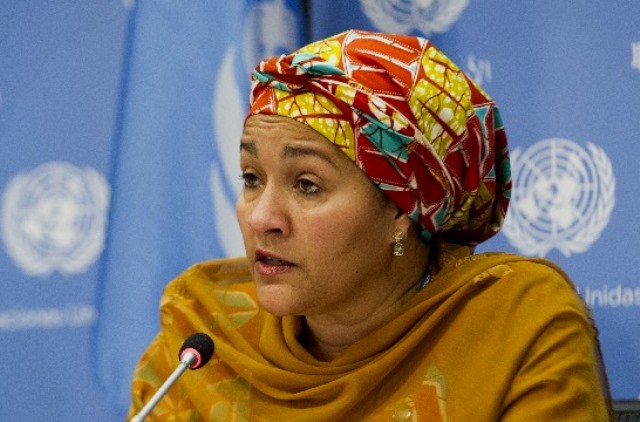At the current rates of progress, the United Nations says the realization of the Sustainable Development Goal (SDG) 6.2—sanitation and hygiene for all—will not be achieved until the 22nd century.
Underinvestment over the past decades in the sector is responsible for the delay, according to a press release by Hiroyuki Saito, head of corporate communication and strategy, Sanitation and Hygiene Fund (SHF).
So the Sanitation and Hygiene Fund, a component UN Office for Project Services, is seeking US$2 billion over the coming five years to support countries in bringing sanitation, hygiene, and menstrual health to all.
The SHF will be critical to dramatically scale up investments to reach everyone with sanitation services, said the UN Deputy Secretary-General Amina Mohammed at the launch of the fund November 17.
Talking about safe sanitation and hygiene, Mohammed said it is “critical to the response that we want to see, first, because it is about human dignity. Second, it is a health issue.”
The executive director of the Fund also emphasized the effort to bring sanitation to all is not only about improving health. “It’s a fight for respect and basic human rights, and an end to stigma,” said Dominic O’ Neill, adding that such money, well utilized, has the ability to drive positive and lasting change.
The change such investment generate is in multiples, according to Dr Zsuzsanna Jakab, deputy director-general of the World Health Organization.
“The economic benefits of sanitation are about five times the cost, and the cost of inaction is far greater,” she said.
Chair of UN-Water and President of the International Fund for Agricultural Development Gilbert Houngbo, who was at the launch, described the initiative as a hopeful sign, especially in the face of the covid-19 challenges the world faces now.
“This fund will bring much-needed funding for sanitation, hygiene, and menstrual hygiene management,” he said.
Also participating in the launch programme was Vice President Yemi Osinbajo of Nigeria.
He said ,“The Sanitation and Hygiene Fund is in many senses a lifesaver.” Osinbajo was particularly impressed one of the features of the initiative: that it is tied to measurable performance,” said.
Henrietta Fore, executive director of UNICEF, called sanitation and hygiene “a great equalizer for children.”
“If everyone had access to sanitation and hygiene in households, in their schools, in their health facilities and communities, it would make an enormous difference in our world,” she said.
Currently, half the world’s population does not have access to safely managed sanitation. No fewer than 620 million children attend schools that do not have toilets. One in three schools do not have even basic sanitation and hygiene services, and one in five healthcare facilities have no sanitation services whatsoever.
The estimated cost of lack of sanitation and hygiene is US$222 billion per year in lost productivity, increased health expenditures, and economic output. Nigeria loses N455 billion yearly for the a similar reason, according to WaterAid, a local NGO focused on WASH.
Also present at the virtual launch were Petronila Musonye of Kenya Water for Health Organization and Abenmire Adi, Gender Rights and Sanitation Advocate for Cross River State, Nigeria.

 Health5 days ago
Health5 days ago
 Entertainment7 days ago
Entertainment7 days ago
 Crime5 days ago
Crime5 days ago
 Education7 days ago
Education7 days ago
 Health7 days ago
Health7 days ago
 Comments and Issues6 days ago
Comments and Issues6 days ago
 Football6 days ago
Football6 days ago
 Latest6 days ago
Latest6 days ago

